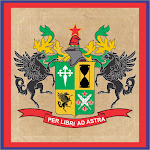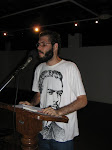Less than a Pearl
A Brief Essay about Short-Stories.
(ensaio entregue como parte da avaliação na disciplina "Conto
em Língua Inglesa", ministrada pela profa. Sônia M. D. Simon)
Salvador, 15 de agosto de 2006
“Less than a pearl in a sea of stars” – Roma Ryan and Enya
By the common sense, Short-Story is a brief narrative in prose which is less than a pearl. A novel may be a diamond as big as the Ritz – never a short-story; it will have all the characteristics of a novel, however in a small scale: the time will be briefer and plot will have few events. But, how long must the short-story be? Or, is the size the only characteristic that determinates a short-story? What must other characteristics have a short-story?
About how long (or short) could be a short-story, we have different statements. Looking up the definition of Cambridge Advanced Dictionary (2nd Ed.), the short-story will have about 10,000 words in length. A group of authors prefers to determine the size of a short-story in 7,500 words; other group, in 15,000. In another word, a short-story would have 05 pages so far and the story has only chapters. But we have long short-story that have 10, 15, up to 30 pages!!! For example these long short-stories we have “Financing Finnegan” by Scott Fitzgerald that has about 10 pages, “Boule de Suif” by Guy de Maupassant that has about 33 pages and “O Alienista” by Machado de Assis that has about 38 pages. In another case, there is short-story that has less than half a page, as some texts of Inácio de Loyolla Brandão and Evandro Affonso Ferreira (Grogotó’s author). The number of pages does not determinate how short a short-story is. As Edgar Allan Poe said, this size of short-story will be the one you can read in one sit.
If the size is not an exact answer about short-story, we need to see other characteristics. In general, a short-story is a narrative as the play, the soap-opera, the myth, the novel, the fable, the news story and some chronicles. The short-story has an action or event that happens with a group of characters, in a defined place during a fragment of time. The specific point is HOW I do this narrative if I want to write a short-story. Some authors (like Cortázar) understand that the short-story must be a Polaroid, a frame of the reality portrayed in a small narration. Others writers (like Poe) think that short-story’s specificity is in your effect. Or better, in an economy of literary ways which an author use the minimum of writing’s resources to goal a maximum of effect. All these approaches give some clues and clarify the question. A short-story is cutting of the reality that the author needs to be economic with his/her pen. It can be completed indicating three more: Exactitude, Lightness and Quickness. These characteristics are used with the same meaning used by Ítalo Calvino in “Six Memos for the Next Millennium”: First, short-story must be light as agile and unforeseen jump. Its plot needs to be agile if it wants be a Polaroid. The short-story may be condensed or soft in its plot, but, always agile. Second, a short-story must be quick in your reading, like a sudden fulguration. So, the reader may read the story in one reading. Last, the short-story’s language must be the most precise and may translate all the faces of thought and imagination. So, with this language, a short-story can have the economy of literary ways.
So, a short-story may be defined as a brief, light, quick and precise narrative in prose that has one and single effect. A story is less and perfect than a peal in the sea of Literature.
Reference
GOTLIB, Nádia Batella. Teoria do Conto. 10ª ed. São Paulo: Ática, 2004 (Série Princípios).
CALVINO, Ítalo. Seis propostas pra o novo milênio. Apud. GOMES, Goulart. Poetrix: uma proposta pra o novo milênio. Iararana, Salvador: Aleiton Fonseca e Carlos Ribeiro, Ano VI, nº. 09, p. 72, ago. 2006.
(agradecimentos a profa Sílvia Sousa ao me ajudar na correção do texto em inglês)


















Nenhum comentário:
Postar um comentário